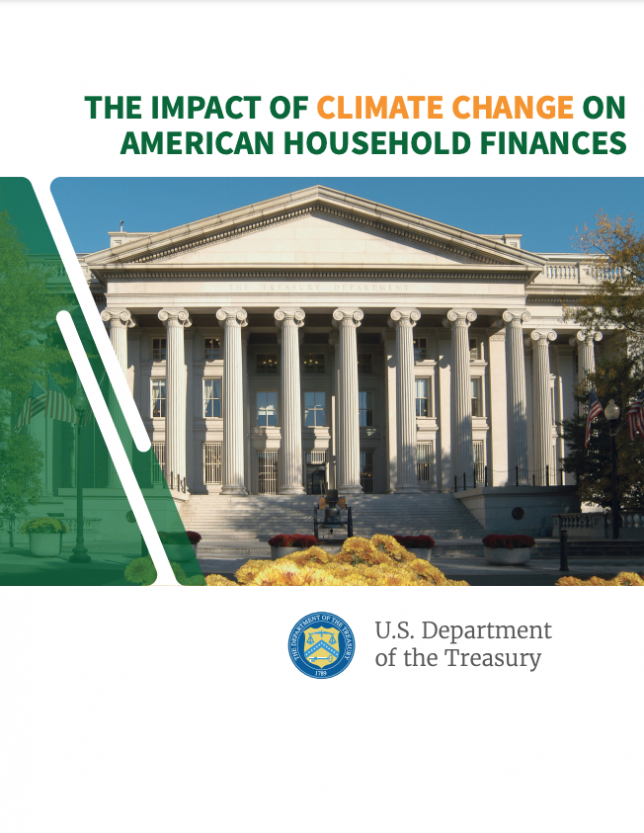
The Impact of Climate Change on American Household Finances
The U.S. Department of the Treasury recently unveiled a revealing report, drafted in collaboration with the Financial Literacy and Education Commission (FLEC), titled “The Impact of Climate Change on American Household Finances.” This report is a culmination of governmental and academic insights and aligns with President Biden’s objectives outlined in Executive Orders 14030 and 13985, emphasizing climate-related financial risk and advancing racial equity and support for underserved communities.
The report scrutinizes the multifaceted impacts of climate change on American households, focusing predominantly on the finances of the most susceptible ones. Climate hazards, such as extreme weather conditions and natural disasters, pose an imminent threat, causing significant damage and harm to individuals, properties, and the environment. Several populations are identified as being exceptionally vulnerable, including outdoor workers, single-parent households, and lower-income families, facing diverse financial strains like income loss, reduced childcare availability, and diminished access to credit respectively.
Households nationwide are grappling with severe financial repercussions, ranging from loss of income due to disrupted business operations, to heightened expenditures related to damage repairs, transportation, healthcare, and utilities. The lack of preparation and access to financial services like credit and insurance exacerbate the situation, leaving many in dire straits during climate events.
Regions across the U.S. illustrate varied exposure to climate hazards, with half of the U.S. counties experiencing elevated exposure to flooding, wildfires, or extreme heat. The report exemplifies this by profiling regions like Appalachia, the U.S.-Mexico border areas, and the Mississippi Delta, facing severe financial strains due to their distinct climate exposures.
In response, the report outlines strategic recommendations and current initiatives by FLEC to bolster household financial security and resilience against climate hazards. It emphasizes promoting awareness, building both physical and financial resilience at community and household levels, and utilizing resources and aid from governmental programs and agencies like FEMA and the U.S. Small Business Administration.
It’s imperative for households to assimilate knowledge about potential climate hazards, build physical resilience through government incentives, and shield their finances from climate-related impacts by adopting strategies like electronic payment of income and expenses. Access to pertinent information and support mechanisms are crucial for communities and individuals to navigate the daunting challenges posed by climate change and to ensure their financial well-being in the face of escalating climate hazards.
